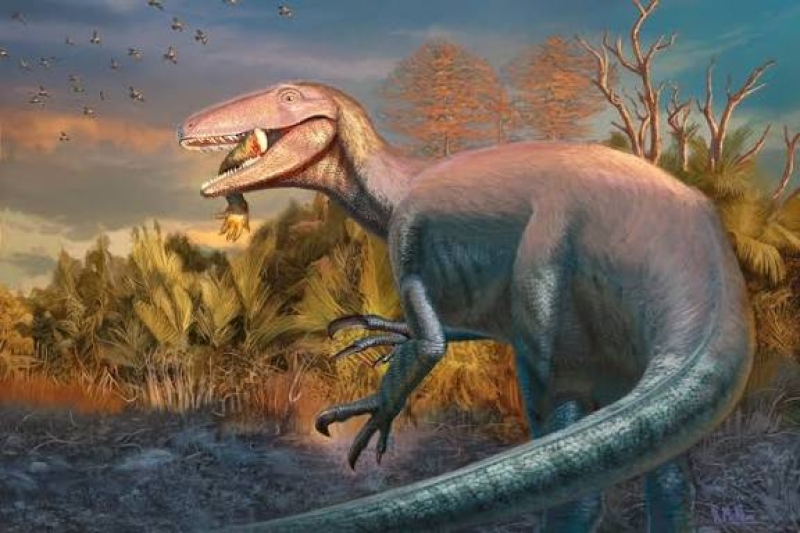- Dhaka set for most transparent election: Yunus tells global leaders |
- Prof Yunus seeks WTO support for Dhaka’s smooth LDC graduation |
- Smear campaigns being carried out to eliminate BNP: Rizvi |
- Prof Yunus Urges Economy Focused on Social Good, not Wealth |
- Dembele crowned king: PSG star wins Ballon d’Or |
Scientists unearth new dinosaur species in Argentina

Scientists have identified a new species of dinosaur in Argentina after unearthing remarkably complete fossils, including remains showing it may have feasted on an ancient crocodile relative.
The predator, named Joaquinraptor casali, measured around 23 feet (7 meters) in length and belonged to a little-understood group of dinosaurs known as megaraptorans. These carnivores once roamed across South America, Australia and parts of Asia, branching into different species over millions of years.
Megaraptorans are noted for their elongated skulls and “huge and very powerful claws,” said Lucio Ibiricu of the Patagonian Institute of Geology and Paleontology, who led the discovery. But their hunting behavior and place in the evolutionary chain remain unclear because of previously incomplete fossil records.
The newly discovered fossils — including parts of a skull, arms, legs and tail — were found in the Lago Colhué Huapi rock formation of Patagonia. Distinctive features in the remains confirmed to researchers that they had uncovered a new species.
“This fills a major gap by providing one of the most complete skeletons yet,” said Federico Agnolin of the Argentine Museum of Natural Science Bernardino Rivadavia, who was not involved in the study. The findings were published Tuesday in the journal Nature Communications.
Scientists estimate the dinosaur lived between 66 and 70 million years ago, close to the end of the Cretaceous period, and was at least 19 years old when it died. A front leg bone from an ancient crocodile relative, found pressed against its jaws, may provide insights into its diet and role as a possible top predator in the region’s lush prehistoric floodplains, reports UNB.
Ibiricu named the new species after his young son, Joaquin. “All children love dinosaurs, so he would probably be a fan too,” he said.

